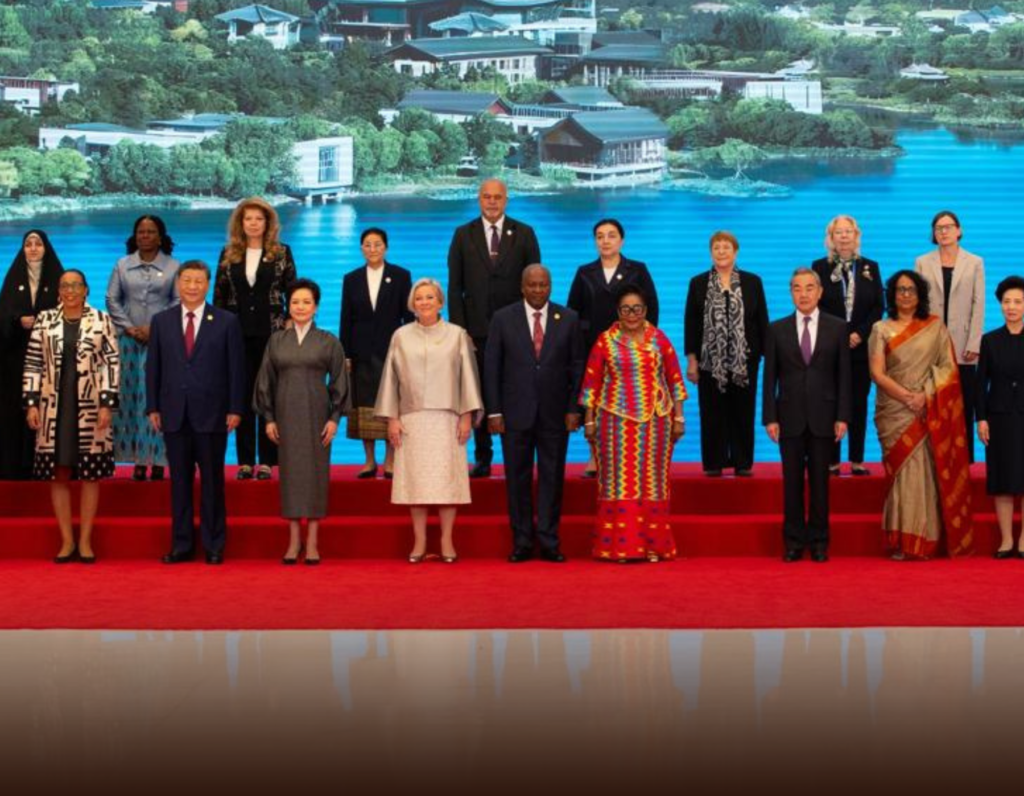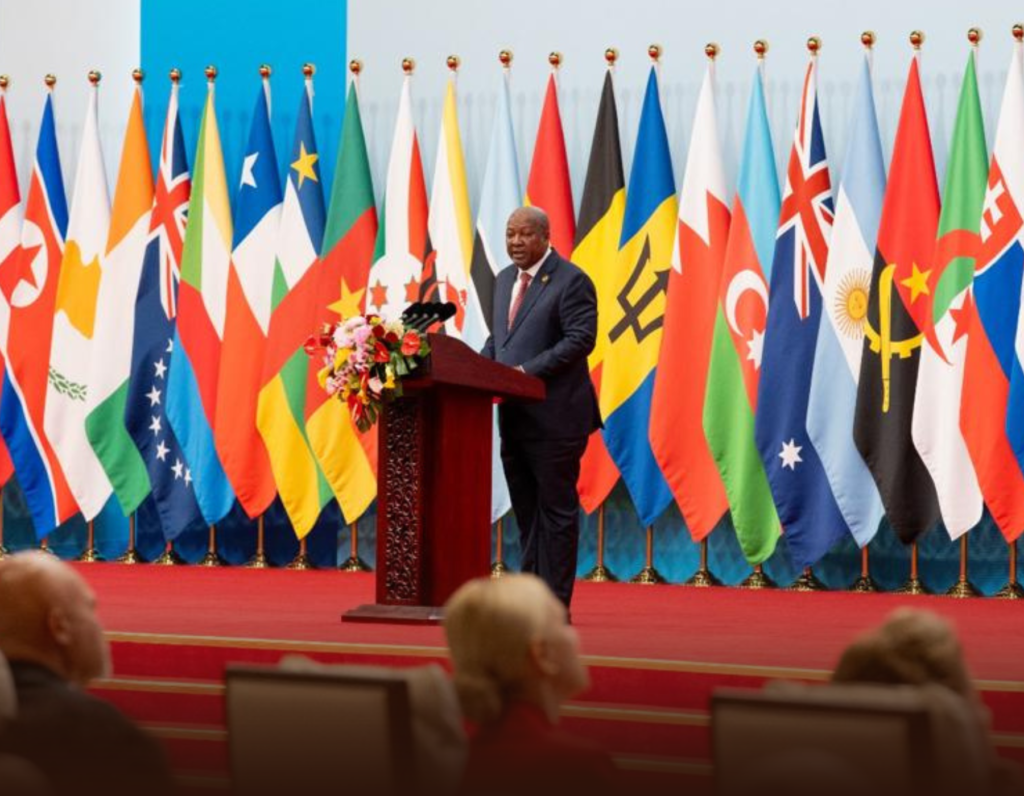Ghana’s President John Dramani Mahama has urged global leaders to take bold and coordinated action to accelerate gender equality, describing women’s empowerment as a “moral covenant” and a “catalyst for sustainable development.”
Delivering his address at the Global Leaders’ Meeting on Women in Beijing, President Mahama commended China’s leadership and reaffirmed Ghana’s strong commitment to the Beijing Declaration and Platform for Action, thirty years after its adoption.
“The promise of Beijing still endures, but it calls for renewed urgency and purpose. The Beijing Declaration was never just a statement of intent; it was a moral covenant. It was a recognition that no nation can truly progress if half of its population is left behind,” Mahama told the gathering, which included President Xi Jinping, First Lady Madam Peng Liyuan, and other heads of state.
President Mahama highlighted Ghana’s progress in advancing women’s representation and leadership across sectors, citing landmark milestones such as the election of the country’s first female Vice President, reforms in public service, and increased female participation in government, the judiciary, and security services.

He announced that Ghana’s newly enacted Affirmative Action (Gender Equity) Act, 2024 (Act 1121) mandates a minimum of 30% female representation in public appointments by 2026, rising to 50% by 2030.
“These are not symbolic gestures,” Mahama emphasized. “They are a deliberate affirmation that women deserve a seat at the highest levels of decision-making and I am confident that one day, Ghana will have a woman president.”
The President also announced plans to establish a Women’s Development Bank to provide low-interest loans, financial literacy programs, and business training to women entrepreneurs. The initiative, he said, aims to promote financial inclusion and expand women’s participation in Ghana’s economic transformation.
Mahama detailed Ghana’s multi-sectoral policies to uplift women and girls, including:
The Livelihood Empowerment Against Poverty (LEAP) initiative targeting female-headed households.
The School Feeding Programme, which sources food locally to improve girls’ nutrition and school retention.
A 50% allocation of microfinance and small loan funds to women-led businesses.
Free sanitary pads for schoolgirls and no-fee tertiary education for students with disabilities, especially women.
He also reaffirmed Ghana’s ongoing institutional reforms, such as the strengthening of the Ministry of Gender, Children and Social Protection, the Domestic Violence Secretariat, and Specialized Courts for gender-based violence cases.

In his address, Mahama spoke as African Union Champion for Gender and Women’s Empowerment, calling on African leaders to prioritize the welfare and empowerment of women as a central pillar of national and continental development.
“The African woman is particularly vulnerable,” he noted. “Gender equality is more than a matter of justice; it is a catalyst for sustainable development. When women succeed, families thrive, communities become stronger, and nations progress.”
The Ghanaian leader’s presence in Beijing highlights the evolving nature of Ghana–China relations, which now extend beyond trade and infrastructure to include social and human development cooperation. China has supported women’s advancement in Ghana through scholarship programs, entrepreneurship exchanges, and cultural partnerships under the Forum on China–Africa Cooperation (FOCAC).
Earlier this year, China’s Ambassador to Ghana, H.E. Tong Defa, reiterated Beijing’s commitment to working with African governments to integrate gender equality into the continent’s green and digital development strategies.
President Mahama concluded his address with a rallying call for global unity and transformative action as the world prepares for Beijing +30, marking three decades since the original 1995 conference.
“Let us ensure that this milestone becomes a turning point, one that accelerates the realization of gender equality and women’s empowerment all over the world,” he said.
The speech was met with applause, reflecting Ghana’s growing reputation as a regional leader in advancing women’s rights and inclusion across governance, education, and economic policy.




